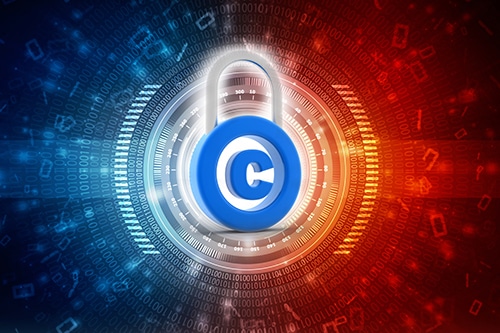Chances are you’ll have first heard the term ‘blockchain’ in relation to Bitcoin and the slew of other emerging cryptocurrencies that are getting a lot of investors and financiers very excited.
Developed in 2008 by Satoshi Nakamoto (a shadowy figure who may in fact be a composite identity for several different programmers) blockchain is revolutionary new software that utilises cryptography to create an immutable ‘distributed ledger’.
Secure and Immutable
Perhaps the key factor regarding blockchain and its capabilities is decentralised structure. Rather than having a central hub or database that can be vulnerable to hackers or malware, blockchain utilises a network of personal computers called ‘nodes’ which enable it to be free of any single authority. Thus no one person or other entity can have complete control over the data stored on the blockchain.
Once an entry is made onto a blockchain, it cannot be altered or destroyed and is therefore easily verifiable and open to scrutiny. A system of permissions is used to grant access to the blockchain and from there on any adjustments or attempted manipulations of the data will be clearly visible to all users.
The result is a transparent, irrefutable record of transactions that is highly resistant to outside interference or inside manipulation. The potential uses for this technology are now starting to manifest themselves across a wide range of fields far beyond the realm of cryptocurrencies. Indeed, there is even a sense amongst many in the tech community that blockchain technology could completely revolutionise the way we use the internet.
Protecting Intellectual Property
 For those looking to safeguard intellectual property, blockchain promises to be a godsend. Piracy has been a chronic problem ever since internet usage became widespread and the battle against it is far from over. Piracy costs billions worldwide and illegally siphons profits from across the sphere of creative industries.
For those looking to safeguard intellectual property, blockchain promises to be a godsend. Piracy has been a chronic problem ever since internet usage became widespread and the battle against it is far from over. Piracy costs billions worldwide and illegally siphons profits from across the sphere of creative industries.
The benefits for those looking to protect their work are clear to see. With copyright registered on a blockchain, there can be no disputing its origin, content or ownership. If a work is licensed or cited elsewhere, then this information too can be stored and rendered immutable. Authors can prove that they originated an idea before anyone else – a particularly useful application when it comes to patenting.
New blockchain platforms are already springing up to utilise this technology and they maintain that not only will they enable authors to assert ownership of their works but also keep track of who may be using it. Binded is one such platform, which issues a digital, blockchain-based certificate of ownership to those registering their works. The company promises to safeguard creativity – which they see as ‘the world’s most valuable asset.’
Platforms like Binded are not the only new front in the war against digital piracy however. One particularly innovative development that is also utilising the power of blockchain has been created by the South Africa-based Custos Media Technologies. This involves impregnating digital content with an invisible watermark in the form of a Bitcoin private key.
In the event of the content being illegally distributed, anyone finding this key can report the leak and be rewarded in bitcoins. Clients using the service can be notified if their work has been pirated and by whom. This added innovation is a particularly instructive example of the self-policing aspect of blockchain tech – there is potentially nowhere for those infringing copyright to hide.
IP Safeguards for the Future
Without moves to protect intellectual property and stop illegal profiteering, the creative industries and the artists that sustain them will continue to lose out. As Binded points out on its website, ‘creativity is one of the few things that cannot be replaced by modern technology’ and it has to be preserved.
As the rise of automation threatens the livelihoods of millions worldwide, it is more important than ever that we protect the priceless commodity that is the human imagination.



